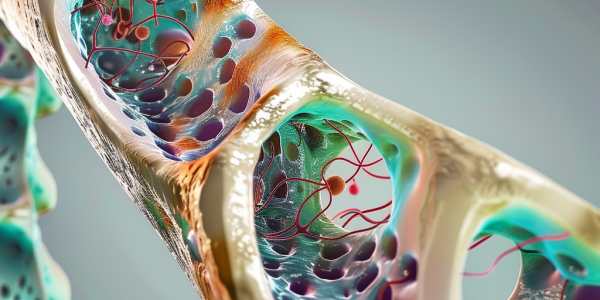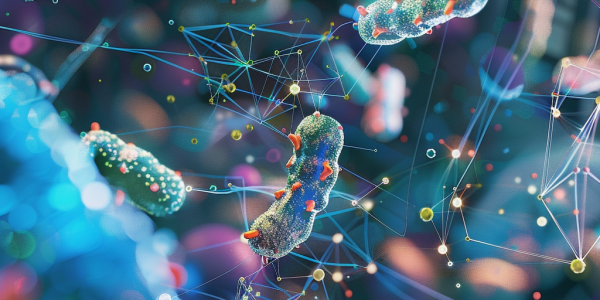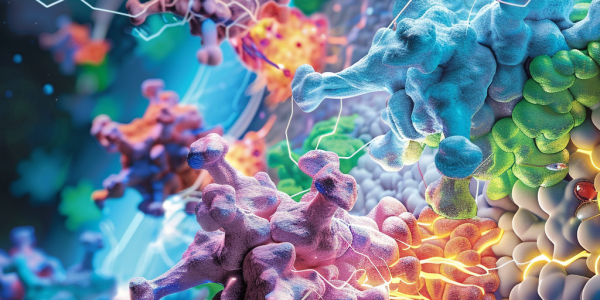New Geological Scenario Proposed for the Origins of Life on Earth
Recent research from Ludwig Maximilian University proposes a new geological scenario for the origins of life, focusing on RNA replication in unique volcanic island conditions. This study highlights how simple geological processes may have facilitated the emergence of life on early Earth, providing insights into the complex interplay between environmental factors and the development of genetic material.
Johns Hopkins Study Reveals Adverse Effects of Low Gravity on Heart Muscle Cells
A groundbreaking study by Johns Hopkins Medicine reveals the detrimental effects of low gravity on human heart muscle cells. Conducted aboard the International Space Station, the research shows that heart tissues exposed to microgravity exhibit significantly reduced strength and rhythmicity. These findings highlight critical health implications for astronauts on long space missions and offer insights into heart disease and aging on Earth.
New Study Reveals Insights into Mitochondrial DNA Inheritance and Potential of Vitamin K2 in Treatment
A groundbreaking study from the University of Colorado Boulder reveals new insights into mitochondrial DNA inheritance, emphasizing the critical role of maternal transmission and the elimination of paternal mitochondria. This research sheds light on the mechanisms behind mitochondrial disorders and suggests that Vitamin K2 may offer therapeutic potential for those affected. Discover how these findings could transform our understanding of cellular energy production and mitochondrial health.
New Research Highlights Role of Clec14a Protein in Bone Formation and Vascularization
Recent research highlights the crucial role of the Clec14a protein in bone formation and density regulation, particularly within capillary endothelial cells. Published in Communications Biology, the study reveals how Clec14a orchestrates osteoblast activity and influences bone angiogenesis, essential for skeletal growth and repair. Understanding Clec14a’s functions could lead to innovative therapies for bone disorders.
Study Reveals Microgravity’s Alarming Impact on Astronaut Heart Health
A groundbreaking study from Johns Hopkins University reveals that microgravity significantly impacts heart health, with heart cells exhibiting reduced contraction strength in space. This research, involving bioengineered heart tissue samples sent to the ISS, raises concerns for long-duration space missions like those to the Moon and Mars. Understanding these cardiovascular effects is crucial for astronaut health and future space exploration.
Scientists Discover Method to Pause Human Development, Transforming IVF Potential
Recent advancements in biological research reveal a groundbreaking method to pause human development, with significant implications for reproductive health and in vitro fertilization (IVF). A study published in Cell explores how manipulating the mTOR signaling pathway allows human stem cells to enter a state similar to diapause, potentially improving embryo implantation timing and success rates in IVF treatments. This innovative discovery opens new avenues for addressing fertility challenges and enhances our understanding of biological adaptability.
Revolutionary Single-Cell Genomics Enhances Understanding of Human Microbiome
Recent research from Waseda University introduces a groundbreaking single-cell genomic approach to studying the human microbiome, revealing insights into microbial diversity and antibiotic resistance. This innovative method, developed in collaboration with bitBiome, Inc., addresses the limitations of traditional metagenomics, allowing for detailed analysis of individual bacterial genomes. Published in the journal Microbiome, the study highlights the potential of single-cell genomics to enhance our understanding of health and disease, paving the way for improved public health strategies and environmental monitoring.
Revolutionary Neurotechnology Promises Breakthroughs in Brain Mapping and Treatment
Scientists at the Salk Institute have unveiled a revolutionary neurotechnology called Single Transcriptome Assisted Rabies Tracing (START), enabling unprecedented mapping of neuronal connections in the brain. This innovative tool combines monosynaptic rabies virus tracing with single-cell transcriptomics to identify distinct neuronal subtypes, particularly inhibitory neurons, in the cerebral cortex. The implications for targeted treatments for neurological conditions like autism and schizophrenia are profound, paving the way for more effective and individualized therapies.
Mercy BioAnalytics Unveils Breakthrough Ovarian Cancer Screening Test
Mercy BioAnalytics has made a breakthrough in ovarian cancer detection with the publication of two studies in the Journal of Molecular Diagnostics. Their innovative Mercy Halo™ screening test offers a novel approach for early detection, crucial for improving survival rates among postmenopausal women. This advanced technology leverages tumor-derived extracellular vesicles, promising a sensitive and cost-effective method for identifying ovarian cancer at earlier stages. As ovarian cancer remains a leading cause of cancer-related deaths in women, the Mercy Halo platform could revolutionize screening practices and significantly impact women’s health.
AI Model SPOT Revolutionizes Understanding of Transport Proteins in Cells
Heinrich Heine University Düsseldorf researchers have developed SPOT, an AI-driven model that predicts the substrate specificity of transport proteins, enhancing our understanding of cellular transport mechanisms. This breakthrough could revolutionize drug delivery systems and accelerate discoveries in cellular biology.










